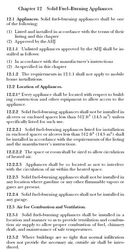I'm in the process of building a workshop (Interior dimensions 15 x 23 feet). I live in southern AZ so I expect one or two months per year when it might get cold enough to need something more than passive solar heating.
I have a large stack of seasoned Mesquite so I was thinking of installing a small wood burning stove.
I'd rather not spend a fortune on something that will only be used occasionally so I was wondering if I could get away with one of those cheap little cast iron stoves?
The workshop will have 4x8 sheets of hardiboard siding (basically concrete), so I'd rather have the chimney go through the wall rather than the roof, is that viable? What would I use? Can I put the stove out near the middle of the room (say 8-10 feet from the wall) and run the stovepipe up at a shallow (near horizontal) angle?
Thanks in advance.
I have a large stack of seasoned Mesquite so I was thinking of installing a small wood burning stove.
I'd rather not spend a fortune on something that will only be used occasionally so I was wondering if I could get away with one of those cheap little cast iron stoves?
The workshop will have 4x8 sheets of hardiboard siding (basically concrete), so I'd rather have the chimney go through the wall rather than the roof, is that viable? What would I use? Can I put the stove out near the middle of the room (say 8-10 feet from the wall) and run the stovepipe up at a shallow (near horizontal) angle?
Thanks in advance.


